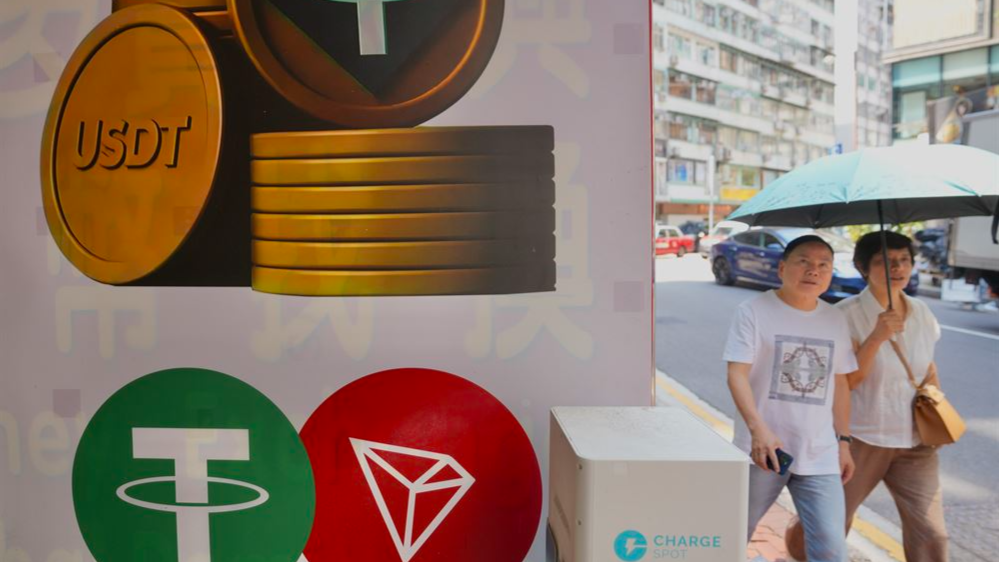
Hong Kong’s latest policy initiatives to establish the city as a global hub for digital assets signal that the special administrative region government is advancing tokenization from trials to broader use, leveraging the foundational infrastructure underpinned by stablecoin, according to experts.
The suite of measures outlined in Chief Executive John Lee Ka-chiu’s latest Policy Address also underscore the importance of strengthening risk management and regulatory frameworks, which industry insiders said highlights Hong Kong’s approach to striking a balance between innovation and stability in the growth of digital assets.
Lee said the SAR government and the Hong Kong Monetary Authority (HKMA) will encourage commercial banks to launch tokenized deposits, facilitate live transactions of tokenized assets -- such as settling tokenized money market funds via tokenized deposits -- and regularize the issuance of tokenized bonds. Meanwhile, the Securities and Futures Commission (SFC) plans to widen the scope of digital asset products and services available to professional investors.
READ MORE: World’s first RWA registry platform launched in Hong Kong
This is a critical moment for Hong Kong to accelerate the tokenization of real-world assets, as the Stablecoins Ordinance now in effect has laid a strong groundwork, said Kenny Shui, vice-president of thinktank Our Hong Kong Foundation and executive director of its Public Policy Institute.
Stablecoin, known for its relatively stable prices, is typically seen as a payment tool for converting real-world assets such as property, stocks, and bonds into digital tokens on the blockchain.
Robert Lui, Hong Kong digital asset leader at Deloitte China, said the Policy Address measures indicate that the SAR government is proactively moving tokenization from pilot programs to becoming a regular practice.
By dividing a high-value assets into smaller units, tokenization creates digital tokens representing fractions of ownership, thereby allowing investors to access high-value assets like real estate with lower entry costs. Lui said, this will help Hong Kong attract a wider pool of investors, and improve the efficiency and reach of its financial market.
In addition to fostering innovation, the Policy Address placed a focus on risk management. Measures include enhancing international cooperation to tackle cross-border tax evasion and equipping the SFC with automated reporting and data surveillance tools to build a line of defense against risks associated with digital assets.
According to Lui, these measures aim to balance innovation with stability, which will help pave the way for Hong Kong to establish a “forward-looking and trustworthy” ecosystem.
Peter Brewin, digital assets leader at PwC Hong Kong, agreed, adding that, “We are confident that a supportive ecosystem for cryptocurrency development will be built, driving robust and orderly growth.”
To seize the moment, experts argue that the government should double down on its tokenization push by rolling out incentives, enriching the portfolio of tokenized products, and enhancing infrastructure.
Tan Yueheng, a Hong Kong lawmaker, suggested that tax relief and financial subsidies could lower the cost of asset tokenization projects, spurring greater participation from financial institutions and enterprises.
READ MORE: Success of HK’s digital asset strategy hinges on execution
Tan also called for broadening tokenization use to areas such as infrastructure revenue rights and renewable energy projects. Shui from Our Hong Kong Foundation added that tokenized stock trading could be another application worth exploring. This would extend Hong Kong stock trading hours and attract investors across regions and time zones, he said.
Hong Kong’s tokenization efforts have gained traction in recent years, with multiple projects successfully launched, covering areas like energy, finance, and real estate.
The SAR government, for example, has issued two tokenized green bonds worth a total of HK$6.8 billion ($870 million), with preparations underway for a third. Last year, the Hong Kong Monetary Authority launched Project Ensemble to support the development of the city’s tokenization market. As part of it, Ant Digital Technologies, in collaboration with energy tech firm LongShine, tokenized the operating revenue rights of 9,000 new energy charging stations on the Chinese mainland and raised around 100 million yuan ($14 million) in Hong Kong.
Contact the writer at irisli@chinadailyhk.com


